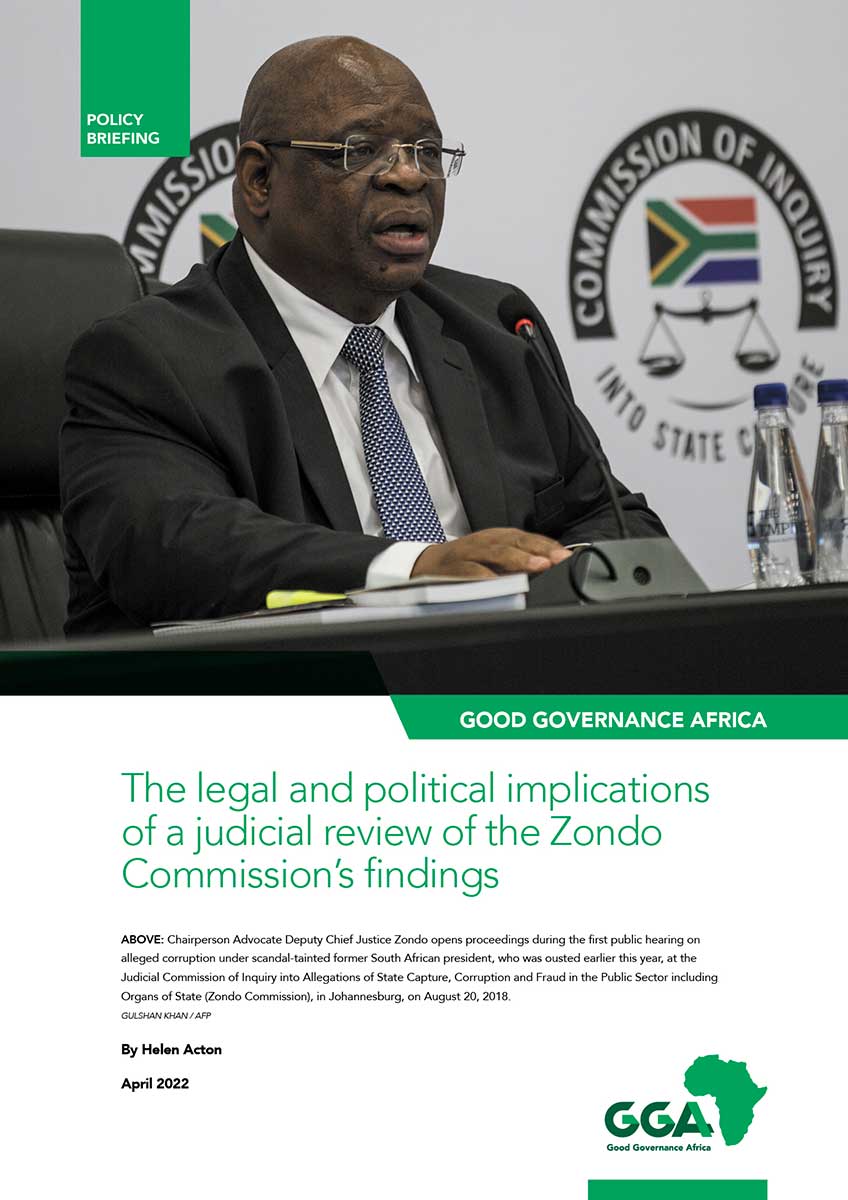
Gwede Mantashe, the Minister of Mineral Resources and Energy, has threatened to judicially review the Zondo Commission’s (‘the Commission’) findings against him. This decision highlights legal and political weaknesses in South Africa’s democratic system. The law is unclear on whether the findings of a Commission of Inquiry (COI) could constitute administrative action reviewable in terms of the Promotion of Administrative Justice Act 3 of 2000 (PAJA). This was not sufficiently dealt with by the High Court the only time it previously faced a judicial review of a COI’s findings. Even if COI findings could constitute administrative action, it seems that the Commission’s findings and recommendations concerning Mantashe in particular are unlikely to be reviewable in terms of PAJA. The principle of legality would be his most viable option for a legal challenge, but on analysis it is unlikely Mantashe would succeed on this basis either. Moreover, challenging the findings of this Commission on legally dubious grounds underscores political weaknesses in the ruling African National Congress (ANC) party, and consequently the electoral system more generally. Not only does the proposed challenge by a senior party member in Cabinet undermine the ANC’s steadfast commitment to end entrenched corruption, but it also demonstrates that the party’s step-aside rule is too narrow. The rule does not impose political accountability on members implicated by COI findings unless they are criminally charged by the National Prosecuting Authority (NPA). This sets the bar too low for political accountability, which should not be equated with criminal liability. The ANC’s lenient step-aside rule, and its members’ use of legal technicalities to avoid political accountability, is dangerous in a proportional representation system with a one-party-dominant legislature. Voters elect a party in a closed list system, and so depend entirely on the ruling party to hold its members individually accountable for wrongdoing. The ANC needs to prove to the electorate that it takes this job seriously.
Helen Acton is a legal analyst at GGA. She holds a Bachelor’s degree in Politics and Philosophy, and an LLB from the University of Cape Town. She is interested in analysing political issues from a legal perspective. Constitutional and administrative law are her primary interests, especially the role they can play in promoting socio-economic equality and improving governance performance.












